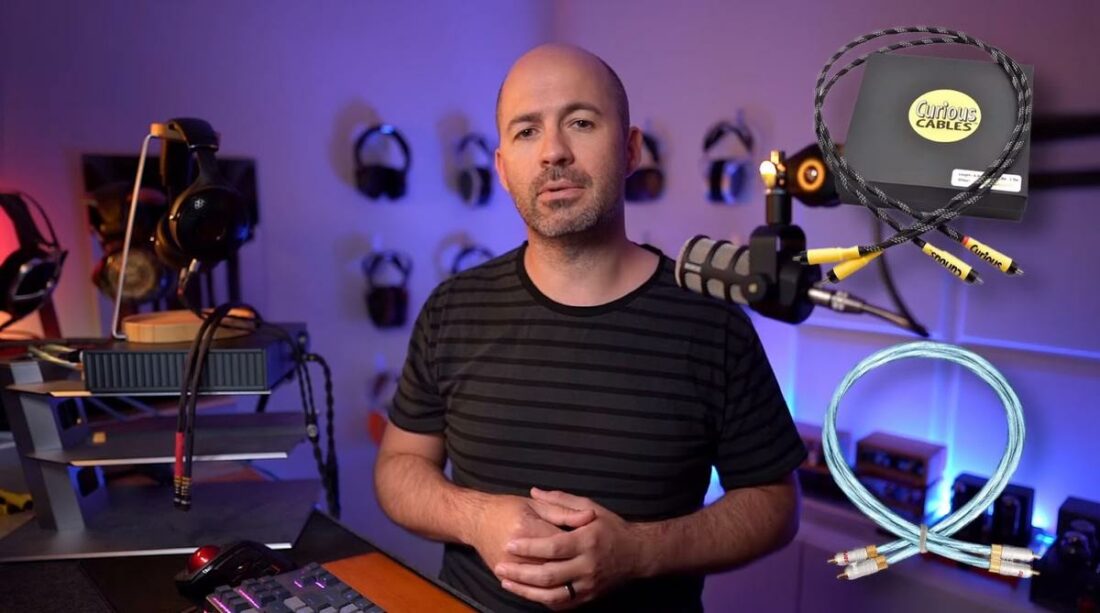From issues on fake likes to biased cable reviews, Passion For Sound’s year is just getting hotter.
On March 20, Scientific Audiophile called out Lachlan Fennen of Passion for Sound on YouTube, accusing him of misleading buyers with his reviews of high-priced audio cables. In the video “S|A HATES Passion For Audio’s Snobbery,” he critiques Fennen’s alleged biased claims, aiming to protect buyers from wasteful spending.
Scientific Audiophile vs. Passion for Sound

The clash began when Scientific Audiophile released a YouTube short making fun of those who glorify pricey audio gear. He argued that reviewers like Fennen are guilty of fueling the myth that higher prices mean better sound quality.
“There is a lot of expensive junk on the market that performs no better than products that cost 1/10th or even 1/30th their price point.” he said.
“Clearly, at Passion for Sound, the reviewer believes the myth that price equals quality. If you want to be entertained, watch his cable reviews, and you’ll notice the more expensive cable is always the better one.”

In his video, Scientific Audiophile pointed out several moments in Fennen’s review where he chose expensive cables over budget ones.
In one clip, he highlighted how Fennen seemed biased towards the Tellurium Q Black II RCA before comparing it to the cheaper Supra SWORD-ISL RCA.
In the videos, Fennen claimed that some cables improved sound quality. But Scientific Audiophile argued that this is just psychoacoustics – meaning people think they hear better quality because they expect to, not because the sound actually improved.
Essentially, the perceived difference in sound is often just a placebo effect, not a real change.

In another clip, Fennen says he could tell the difference between two cables in a blind test. The Scientific Audiophile strongly disagreed with this, offering money if Fennen could demonstrate his ability to do so.
Before wrapping up his video, Scientific Audiophile clarified why he needed to make a stand.

When to Buy High-End Cables
Scientific Audiophile emphasizes that he wants to keep viewers from overspending on audio cables. While he says there are valid scenarios wherein buying a higher-quality cable is justified, sound quality is not one of them.
Here’s a summary of those scenarios, according to Scientific Audiophile:
- Need for Additional Shielding: A cable with better shielding can reduce interference.
- Specific Length Requirements: Investing in a high-quality custom cable is practical when you need it in an uncommon length.
- Durability Concerns: Cables with better build help avoid repeated replacements.
- Flexibility: Higher-quality cables are more pliable, making them easier to route or fit in tight spaces.
- In-Wall Installation: Cables that go inside your walls should be rated for in-wall use for safety and longevity.
Mostly Positive Community Reactions
The comments on Scientific Audiophile’s video were slightly mixed, with most leaning towards the positive.
One commenter questioned Scientific Audiophile’s views on blind tests and sound differences. In response, Scientific Audiophile mentioned a study where 15 people could only guess correctly 50% of the time when comparing two power cables for audio quality differences.

Another commenter questioned if two power cables made of different materials indeed wouldn’t have a noticeable difference in sound.

Other users also shared their thoughts and experiences on product reviews.
One person said they avoided reviewing IEM cables so as not to post negative feedback if he didn’t like them. Another mentioned that reviewers may feel pressured to praise the free products they receive to help sell them.
Otherwise, most comments were positive, with many supporting the Scientific Audiophile’s callout of Passion for Sound.


I believe, from experience, that active components, i.e. amps, preamps, phono cartridges, disc players do have different sounds. Passive components like speakers and ear/headphones also will have different sounds. Cables are a different situation.
I used to question “break in” periods, until on one occasion I was able to hear a difference. However, beyond that (very short) period of time, and dependent upon the gauge of the wire and the gauge of the internal strands, there are no differences.
I have never liked the sound of woven speaker cables. However, I cannot explain the reason for this other than the total length of a woven cable, when the strands are de-woven (not sure that this is a word) will be longer than a more conventional cable with parallel conductors.
Finally, cables for digital signals, both fiber optic and conductive wires, have never been proven to sound different. In this case the digital encoding of the signal, if the cable is properly constructed, is totally dependent upon the active electronics decoding the signal.
Having said this, it is more than 25 years since my time in the consumer electronics business and longer still since I have evaluated passive components, but I have never been convinced otherwise.
A comment like the above makes me wonder what he is even doing in the audio business if he can’t tell sound differences between cables. He should probably stick to something he knows.